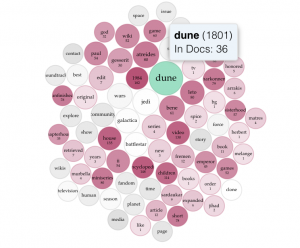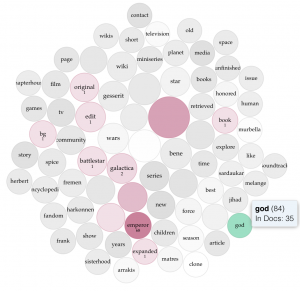The Empathy Stories
There is an empathy problem in our society. For the sake of this argument, when I speak about ‘our’ society, I mean American society. Science Fiction is valuable for people of all walks of life, of all cultures, of all creeds, but as I am from the United States, I feel most comfortable speaking from an American perspective about the shortcomings that I see in American society. It seems to me that while Americans as a culture have made leaps and bounds towards equality between people of different races, genders, and socioeconomic backgrounds, there is still a fundamental issue with the American definition of ‘normal.’ In the United States, ‘normal’ still means to be white, straight, male, and wealthy. This is how our culture has been constructed since the founding of this nation. The vast, vast majority of those elected to political office are white, straight, male, and wealthy. Those people dictating law, the people inscribing the policies which shape our social and legal codes are operating from a position of privilege, and when there is not nearly enough diversity or representation on the committees that address social issues, those privileged perspectives are simply reinforced and baked into the fabric of our culture. Our legal code takes the privileged perspective of the white, straight, wealthy male, and so in the eyes of the government, anyone who does not fit into the intersection of identities is then othered and held in contrast to this white male perspective. But this issue extends beyond the political and into the cultural inheritance that is passed down to each successive generation of Americans. Which writers are considered to be the cornerstones of American literature? Hemingway? Fitzgerald? Faulkner, Twain, Steinbeck? Toni Morrison only if you have a particularly woke high school English teacher. The vast majority of what young Americans learn is our literary cultural heritage is deeply tied to the white, straight, wealthy, male perspective. That perspective is the norm. The type of thinking that is tied to that perspective is considered ‘normal.’ And so, our society has a deeply felt empathy problem. As a culture, it is harder for us to empathize with people who don’t fit the norm because our entire political and cultural perspective was built around a ‘normal’ in which the majority of Americans do not fit. What do we do about his empathy problem? We read science fiction, of course.
Science fiction, at its core, is a cognitive exercise in the other. As writer Darko Suvin wrote, “SF is, then, a literary genre or verbal construct whose necessary and sufficient conditions are the presence and interaction of estrangement and cognition, and whose main formal device is an imaginative framework alternative to the author’s empirical environment.” Though Suvin’s words are self-explanatory, the meaning here is critical. Science fiction is produced at the juncture of writings about cognition and writings about estrangement. Science fiction asks and sometimes answers the question, “What is it like to be different?” To think differently, to have a different body, a different world. American filmmaker James Gunn offers a slightly different definition of science fiction, “Science Fiction is the branch of literature that deals with the effects of change on people in the real world as it can be projected into the past, the future, or to distant places.” In both Suvin and Gunn’s definitions, the critical thread of science fiction is made clear. Science fiction tries to flesh out what it would be like to be different. Science fiction writing tries to puzzle through what it would mean if the world were different, or if people were different.
This can be seen in science fiction stories from different eras and different nations. From Clifford D. Simak’s story “Desertion” where people willingly shed their human skin by stepping into the converter device to explore the surface of Jupiter, only to learn that it is far, far better to be a Loper than to be a human being (Simak 160). Or Rochita Loenen-Ruiz’s story “Alternate Girl’s Expatriate Life” which imagines life as an automaton girl trying to save her automaton father from being sacrificed to the Remembrance Monument (Loenen-Ruiz 7). These stories are not capturing human experiences, nor are they describing experiences that any living human will likely ever have, but there is a critical exercise in imagination in these stories. Science fiction pushes the readers and writers of science fiction to imagine what it would be like to be different. Simak’s “Desertion” challenges the fundamental assumption that to be human is the best way to be. It is only after the main character is transforms himself into a Loper that he realizes how constrained his consciousness was in the limited human form. His mind is expanded, his cognition reaching out to understand the world around him in ways that he never could have previously imagined. Loenen-Ruiz’s “Alternate Girl’s Expatriate Life” pushes the reader to empathize with a robot, a machine which, in contemporary life, cannot feel emotion or desire. These stories expand the definition of what it means to feel emotion, of who can feel emotion, of what is the best way to be human, and what it means to be human. Following a cursory reading of science fiction stories, a reader can begin to empathize with the perspective of a boy trying to kill the god of sound in Panagiotis Koustas’s “Athos Emfovos in the Temple of Sound,” a millennium-old computer-plant hybrid in Nnedi Okorafor’s “From the Lost Diary of TreeFrog7,” a sentient pool cleaning robot in Alastair Reynolds’s “Zima Blue,” a Navajo woman saving an expedition to Mars with her people’s corn in Nanobah Becker’s “The 6th World,” or just a boy who loves science fiction in Federico Schaffler’s “A miscalculation” (Koustas, Okorafor 219, Reynolds, Becker, Schaffler 209). Truly, the different perspectives adopted by science fiction writers is only limited by the imagination, and each new story pushes the science fiction reader to stretch their empathetic capacities to imagine a new mindset, a new way of being, and a new way of interpreting the question of what it means to be human.
Detractors of my argument might say that, from an anthropological perspective, science fiction must be a reflection of the society which produced it, and therefore cannot truly push our culture to do away with the idea of ‘normal.’ I would argue, in response, that while the author may have produced the work through a particular anthropological lens, the work itself is devoid of meaning save that meaning which the reader imparts to it through the act of reading. It is the act of pushing the reader to process a viewpoint that is different from one’s own that is valuable here, even if how a narrative is constructed is reflective of a dominant cultural perspective.
These science fiction exercises in empathy are, I think, very necessary for our society moving forward. While this change is already happening, science fiction can only speed the process of redefining what it means to be ‘normal,’ or doing away with the idea of ‘normal’ altogether. As we as a society come to realize how critical it is that people of all backgrounds and all races have equal representation under the law and in the dominant cultural narrative, the question then becomes, “How can we as a society prevent this sort of systematic inequality from happening again?” And again, science fiction may be able to help. Science fiction is not only pushing readers to empathize with different ideas of what it means to be human but also to empathize with the populations occupying different potential futures. Worlds where cybernetic enhancements have become the norm, where natural resources have run dry, where the human life span has been preserved indefinitely, or where virtual realities have become more enticing than the world before us. These are all very possible ways that humanity could progress, and as James Gunn said, science fiction is literature that processes how people would handle potential futures. Science fiction has predicted several of the largest cultural and historical upheavals in human history. John W. Campbell predicted the advent of intelligent computers in 1935 and Karel Capek coined the term “robot” in 1920. Science fiction is, then, an exercise in empathy, not only empathizing with people, but with the people who will have to suffer the consequences of our actions. The course of human history might have shifted had popular society understood the terror that the atomic bomb would cause when H.G. Wells predicted the destructive power of atomic weaponry in 1914.
I am not going to sit here and make the argument that science fiction will solve all of our societal problems and that it is the magical cure-all for a world that is so often flirting with a dystopian future. I do, however, believe that science fiction is a genre that promotes expanded viewpoints and empathy in its readers. Empathy with perspectives and futures that are so alien, so confusing and distant, that when we science fiction readers return to the real world, it isn’t as difficult to try and understand one another a little bit better.
Work Cited
Loenen-Ruiz, Rochita. “Alternate Girl’s Expatriate Life.” The Apex Book of World SF 2, edited by Lavie Tidhar, Apex Publications, 2012.
Koustas, Panagiotis. “Athos Emfovos in the Temple of Sound.” The SFWA European Hall of Fame: Sixteen Contemporary Masterpieces of Science Fiction from the Continent, edited by Morrow, James, and Kathryn Morrow, Macmillan, 2007.
Okorafor, Nnedi. “From the Lost Diary of TreeFrog7.” The Apex Book of World SF 2, edited by Lavie Tidhar, Apex Publications, 2012, 219-237.
Reynolds, Alastair. “Zima Blue.” Love, Death, and Robots, produced by Netflix, 2019, https://www.netflix.com/watch/80223962?trackId=13752289&tctx=0%2C13%2C45255f4f-d71b-4af3-9c59-5d229a4330a6-481978327%2C%2C.
Schaffler, Federico. “A Miscalculation.” Cosmos latinos: An anthology of science fiction from Latin America and Spain, edited by Bell, Andrea L., and Yolanda Molina-Gavilán, Wesleyan University Press, 2003, 209-211.
Simak, Clifford D. “Desertion.” The Wesleyan anthology of science fiction, edited by Evans, Arthur B., et al., Wesleyan University Press, 2010, 177-188.
“The 6th World.” Youtube, uploaded by FUTURESTATESTV, 1 Apr 2013, https://www.youtube.com/watch?v=7f4Jm0y_iLk.



